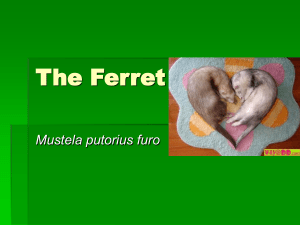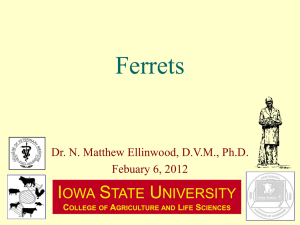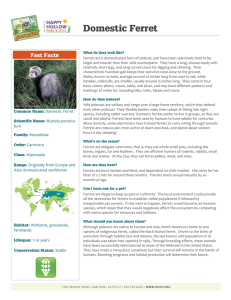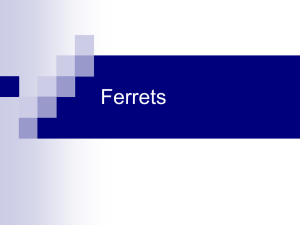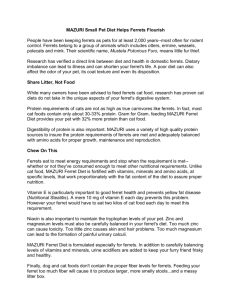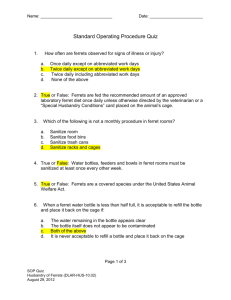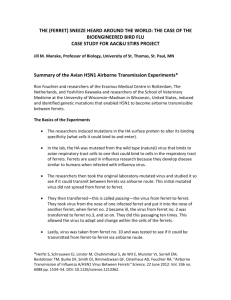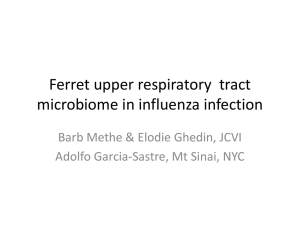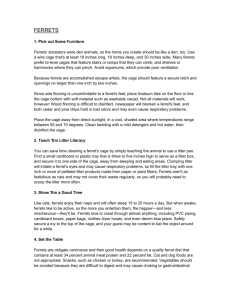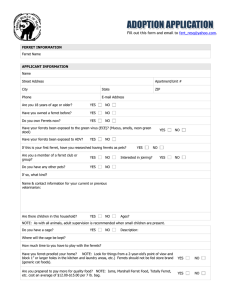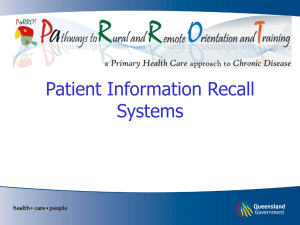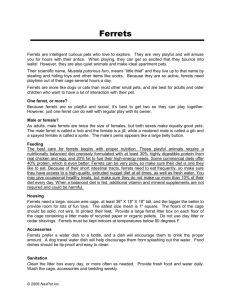Hanks Guide to Ferrets
advertisement
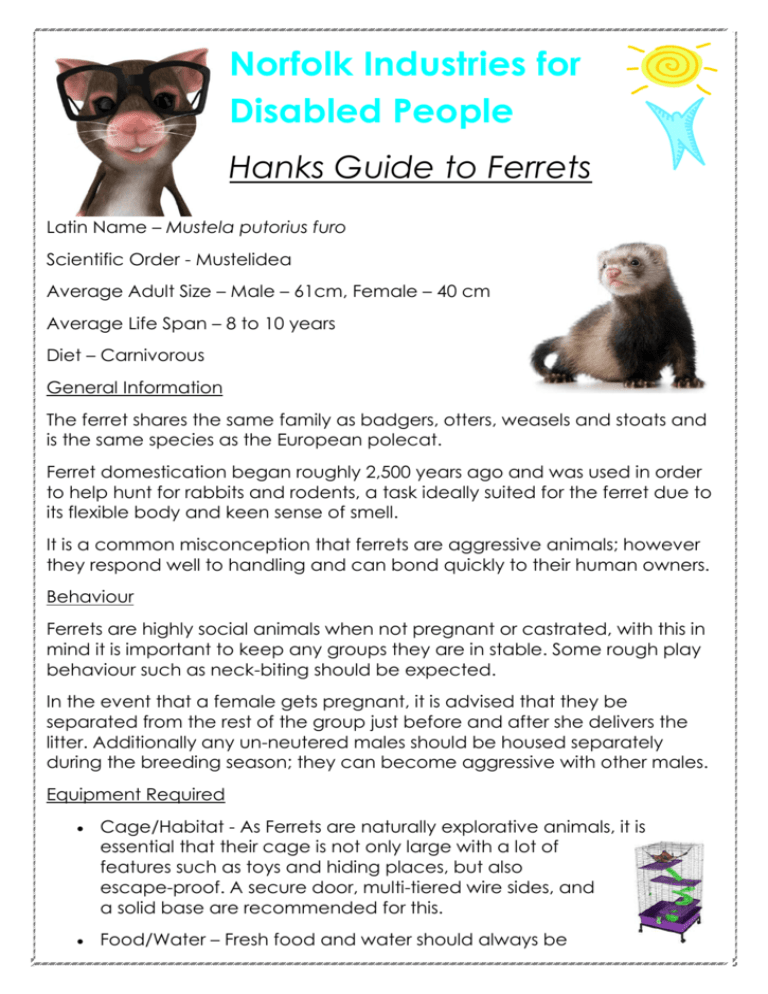
Norfolk Industries for Disabled People Hanks Guide to Ferrets Latin Name – Mustela putorius furo Scientific Order - Mustelidea Average Adult Size – Male – 61cm, Female – 40 cm Average Life Span – 8 to 10 years Diet – Carnivorous General Information The ferret shares the same family as badgers, otters, weasels and stoats and is the same species as the European polecat. Ferret domestication began roughly 2,500 years ago and was used in order to help hunt for rabbits and rodents, a task ideally suited for the ferret due to its flexible body and keen sense of smell. It is a common misconception that ferrets are aggressive animals; however they respond well to handling and can bond quickly to their human owners. Behaviour Ferrets are highly social animals when not pregnant or castrated, with this in mind it is important to keep any groups they are in stable. Some rough play behaviour such as neck-biting should be expected. In the event that a female gets pregnant, it is advised that they be separated from the rest of the group just before and after she delivers the litter. Additionally any un-neutered males should be housed separately during the breeding season; they can become aggressive with other males. Equipment Required Cage/Habitat - As Ferrets are naturally explorative animals, it is essential that their cage is not only large with a lot of features such as toys and hiding places, but also escape-proof. A secure door, multi-tiered wire sides, and a solid base are recommended for this. Food/Water – Fresh food and water should always be available and should consist of high-quality ferret food and clean, filtered, chlorine-free water. Treats – While treat foods are certainly an option, any amount given should not exceed 10% of a ferret’s diet. Bedding – Any bedding should be 1-2 inches deep and of high quality. Norfolk Industries can provide the paper bedding of the standard required. See product details at www.norfolkindustries.co.uk Tubes – Norfolk Industries can also provide ‘Snooze Tubes’ not only to complement the bedding, but also to help simulate a tunnel habitat ferrets would experience in the wild. See product details at www.norfolkindustries.co.uk Maintenance Tasks Water should be changed daily. Habitat should never be in direct sunlight or exceed 80°F. Clean habitat at least once a week with mild soap and water. Allow to dry fully before returning ferret. Scoop litter box daily and change bedding at least once a week. Grooming and Hygiene Monthly baths are recommended using a ferret shampoo. Bathing will not remove the natural musky smell ferrets have. Outer ears should be cleaned using a cotton ball with ear-cleaning solution. Nails should be cut every two to three weeks. Though they shed twice a year, a ferret’s fur can be brushed daily with a soft brush. General Health Conditions As ferrets are normally quite active when awake, note should be taken if lethargic behaviour is evident. Poor living conditions and diet can result in diarrhoea. Ear mites are a parasite that causes the ferret to constantly itch. They are evident by the brownish discharge left in the host’s ears. Ferrets are vulnerable to heat stroke. This can be lethal if the ferret is left in a hot room for a long period of time. Warnings signs show heavy panting, seizures and loss of consciousness. While ferrets malt, an abnormal loss of hair could be evidence of adrenal gland disorder. Bare in mind the cause of this is currently unknown. Any health problems should be dealt with by an exotic animal veterinarian. General Care Information A typical ferret can live for 8 to 10 years in captivity with 75% of that time consisting of them sleeping. When awake however, they are energetic and inquisitive. As such it is necessary to ensure that any home pen is not only stimulating and spacious, but also escape proof. Holding your ferret – Handling should be gentle but firm with the hindquarters always supported. Due to poor eyesight movements should be fluid as they may bite if alarmed. An unhappy ferret will show it by arching their backs and emitting hissing or screeching sounds. Pregnant ferrets will likely become more aggressive, so extra care should be taken when handling them. Temperature – Habitat should always be at room temperature and not exposed to any extremes caused by direct sunlight or drafts. Washing Hands – Always wash hands after handling ferret and / or habitat contents to prevent the spread of any potential diseases your ferret may be carrying. Information supplied by – Norfolk Industries for Disabled People 95 Oak Street, Norwich, Norfolk NR3 3BP Tel : 01603 667957 Fax : 01603 624265 Email – sales@norfolkindustries.co.uk Website www.norfolkindustries.co.uk A Social Firm employing people with disabilities and providing voluntary placements to local people with various barriers to work. Utilising recycled materials in many products and providing a quality product to our customers, large and small! ‘Caring about people, caring about nature.’
